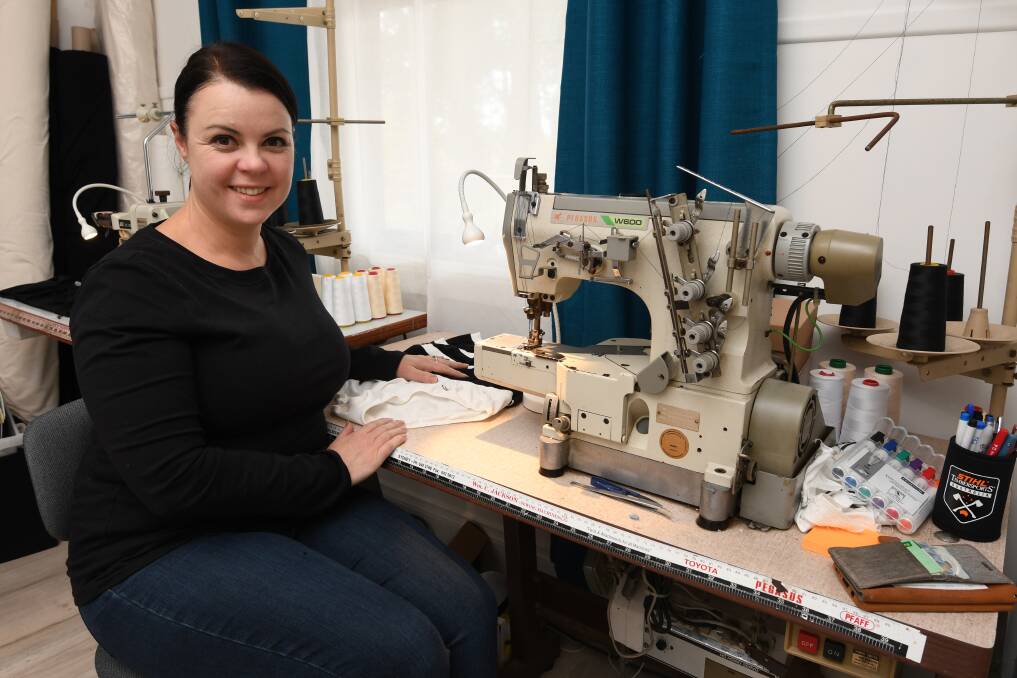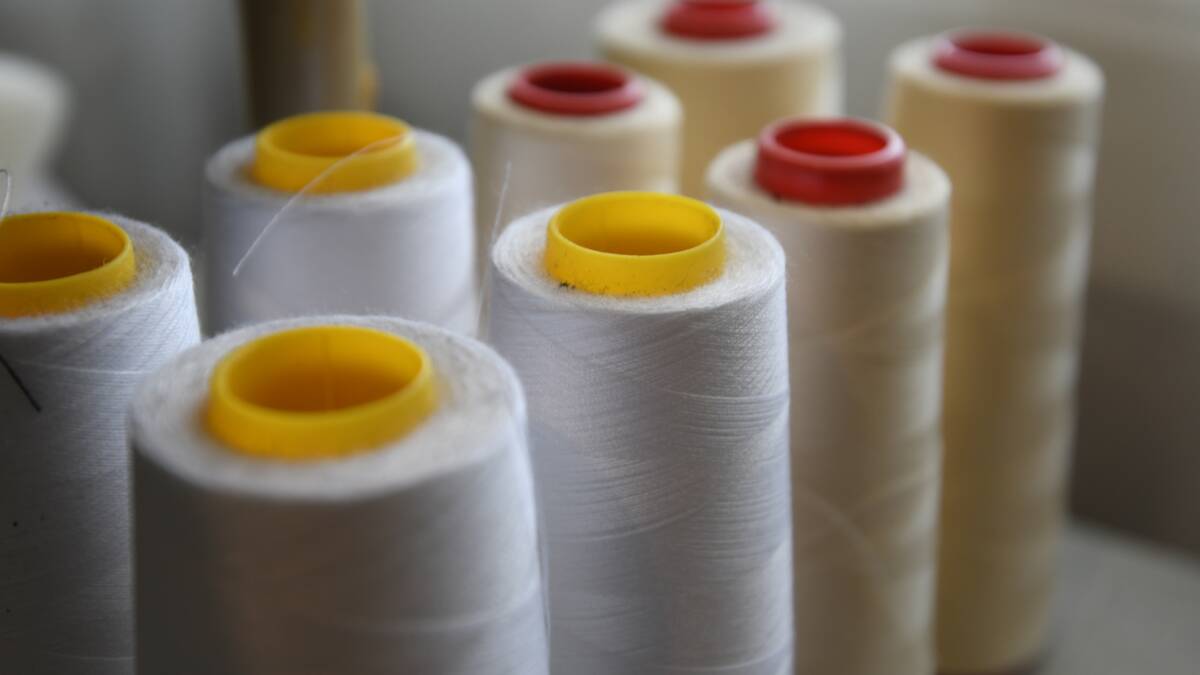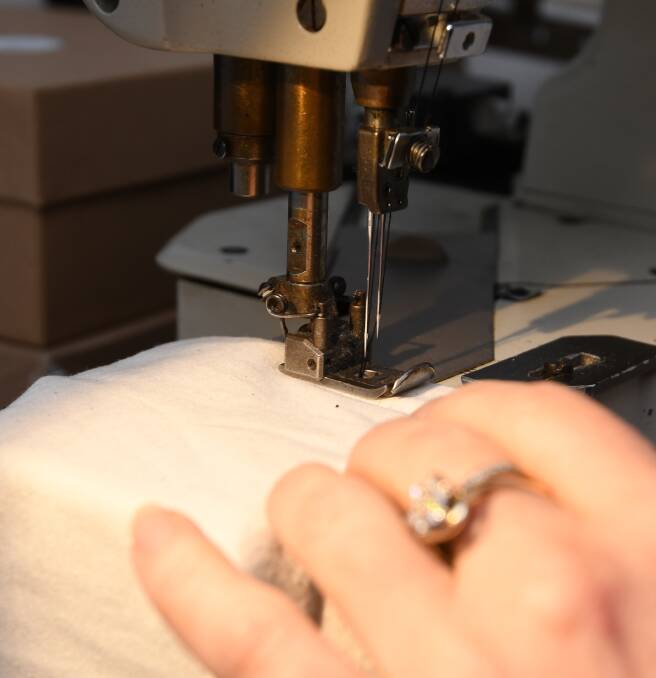
Fast fashion is one of the biggest contributors to the waste stream, but one Daylesford resident is trying to buck the trend through her sustainable fashion business.
Subscribe now for unlimited access.
or signup to continue reading
The term fast fashion is coined to describe cheap clothing that is mass-produced to keep up with the latest trends. But the price of the clothing is costly to the environment, as it is carbon-intensive to produce and commonly winds up in landfill due to its short life.
But due to the cost to purchase, it is popular choice for those looking to keep up with fashion trends. A 2019 Ibis World report indicated that the Australian fast fashion industry is up 11.8 per cent in the five years since 2014 and is now worth an estimated $2.1 billion.
Further, YouGov research from 2017 found that 75 per cent of Australian adults had thrown away clothes at some point in the past year with 41 per cent of participants admitting to throwing unwanted items of clothing straight in the bin.
Background
Anna-Louise Howard had been an environmental landscape photographer of 25 years - mostly capturing environmental damage by industry - when she realised she had all of the right people - who could make a difference from an industry perspective - viewing her work, but nothing was changing.
"So I thought, if I can't get the message across with what I'm doing now, then what can I do to change it? How do I go from always being at the wrong end of the photo to start from the seed and go forward," she said.
So six years ago she put up her last photography exhibition, took a long look at the global environmental damage and a bit over a fortnight afterwards, found a pathway to an industry she could make a difference in: the fashion industry.
According to the University of Queensland, more than 60 million people work in the clothing industry that fuels fast fashion, with more than 15 million of those people in Asia, who supplies more than 90 per cent of the clothing imported to Australia.
Armed with personal experience of the global manufacturing industries- such as in Sri Lanka and China - Ms Howard decided she would build a socially responsible fashion business that supported fair trade and had a low carbon footprint.

She enrolled in fashion school, began a business degree and founded her first business - All Myn - a design-to-fit business based on the premise that if people owned clothes that fitted them perfectly, then maybe they would look after them better. But it was not the case - so she went back to the drawing board.
Farm to hanger
Farm to Hanger was born in Sydney in late 2017 based on the core values of being a completely ethical and sustainable business with traceable and transparent processes.
Ms Howard started with the single highest polluting garment - the t-shirt- and from her design-to-fit business, realised people were coming back to her for the fact they sought natural fibres.
Through extensive research, Ms Howard decided cotton was the best product for her business.
According to WWF, producing the cotton for the average t-shirt can use up to 2700 litres of water.
When she started to look for fabrics and raw materials for her garments, she discovered a cotton farm in Queensland - which would assist in reducing carbon miles as she would not have to import it - called Australian Super Cotton.
"All of my fabric is single origin from their farm - they run permaculture principles through the farm and have a wildlife corridor," she said.
"Because it is a long process they grow a beautiful, premium, long staple cotton which is now affording us to spin very fine yarn. So the lady who makes my fabric is able to spin very fine fabrics. So the future of the business - even though it's very high risk to be using one supplier - is all about having those transparent and traceable processes.
"With the way I work with my design process, I'm down to 450 litres of water from paddock to product. So that's 80 per cent less than the average t-shirt," she said. "The fabric is biodegradable. There's no cotton poly blend or elastane in it - It is literally 100% cotton - nothing else in it."

Ms Howard moved to Daylesford due to it being where her customer base was and today, the business is very much customer driven.
In Sydney, she had a handful of staff and again hopes to employ people to work for her business once she develops her off-grid apparel factory - fitted with 100 per cent green power, rain water and filled with recycled machines that would otherwise have been sent to landfill.
Design
Ms Howard started by designing t-shirts and has since moved into undergarments after feedback that they are the one item that cannot be bought secondhand.
Her design process is different to other designers in that she obtains the fabric first, and then designs her product.
"So it's like the old school way of when fabrics would arrive on ships and the merchants would go down to the docks and pick up all the fabrics, take the to their shops and the designers would buy it," she said.
"Nowadays they design the garments and then go and find the fabrics. But that is because the marketplace is so heavy with fabrics - there's lots of dead stock - you can get every colour under the sun for everything you could possibly want, mainly because it's done with polyester and chemical processes."
Ms Howard is poising to launch a new completely circular line of underwear with biodegradable elastic.
Sustainability
Farm to Hanger is completely circular in that not only is her cotton grown sustainably in Australia, the textile product is produced without toxic chemicals, dyes or emissions, the design processes creates little to no waste and any offcuts are fashioned into dog toys that are donated to Greyhound Rescue.
"So from the farm where [the cotton is] grown, we can geotag all the way through to the mills in Melbourne that make the fabric. Then it comes up to me - I cut, make and sew everything here and no fabric leaves the site other than the product itself. We have zero waste here," she said.
Her final products are not packaged in plastic and on top of all of that, Ms Howard runs a consumer repair and recycle service and cares for the environment by planting a tree through Greenfleet for every product sold.

